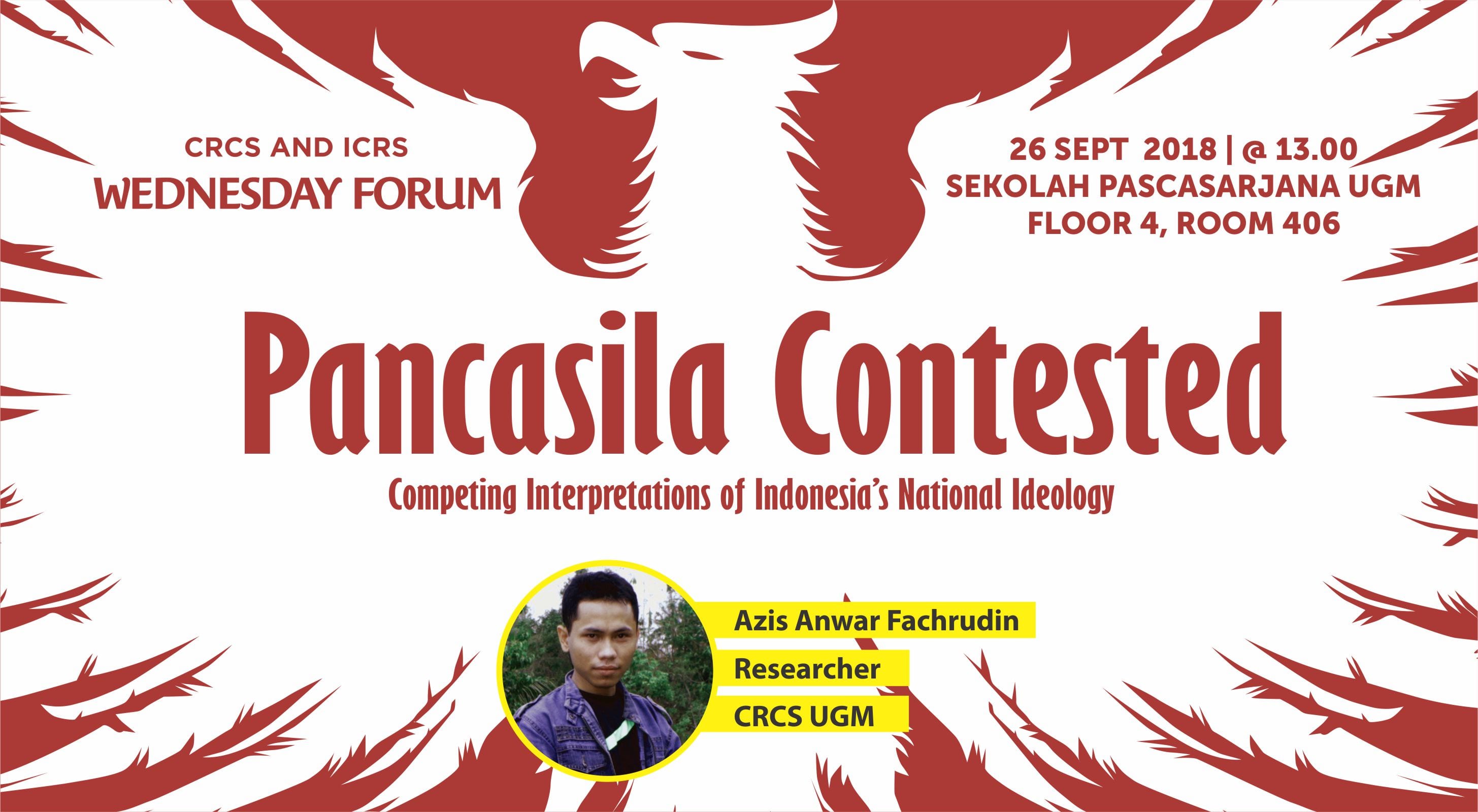
Popular discourse surrounding Pancasila, the national ideology of the Indonesian State, often treats the five silas or principles as self-evident and even univocal in meaning, but a deep historical look into how these aspirations have been interpreted and politically implemented since the founding era, by political leaders and public intellectuals, suggests otherwise. This talk shows how competing interpretations of Pancasila since 1945 have been heavily tied to contestations over the public position of religion, particularly Islam, the Indonesian faces of such ideologies and political systems as secularism, communism and democracy, and the dynamics of the post-Reformasi era.
Azis Anwar Fachrudin finished his bachelor’s in Arabic literature at UIN Sunan Kalijaga in 2013. Since completing his MA in religious studies at CRCS in 2016, he has been working as a CRCS staff member focused on public education and is the author of the CRCS Quarterly Report Polemik Tafsir Pancasila (2018). Above all, however, he is nothing but a speck of dust in this universe.
Look at the full poster of this event here.

